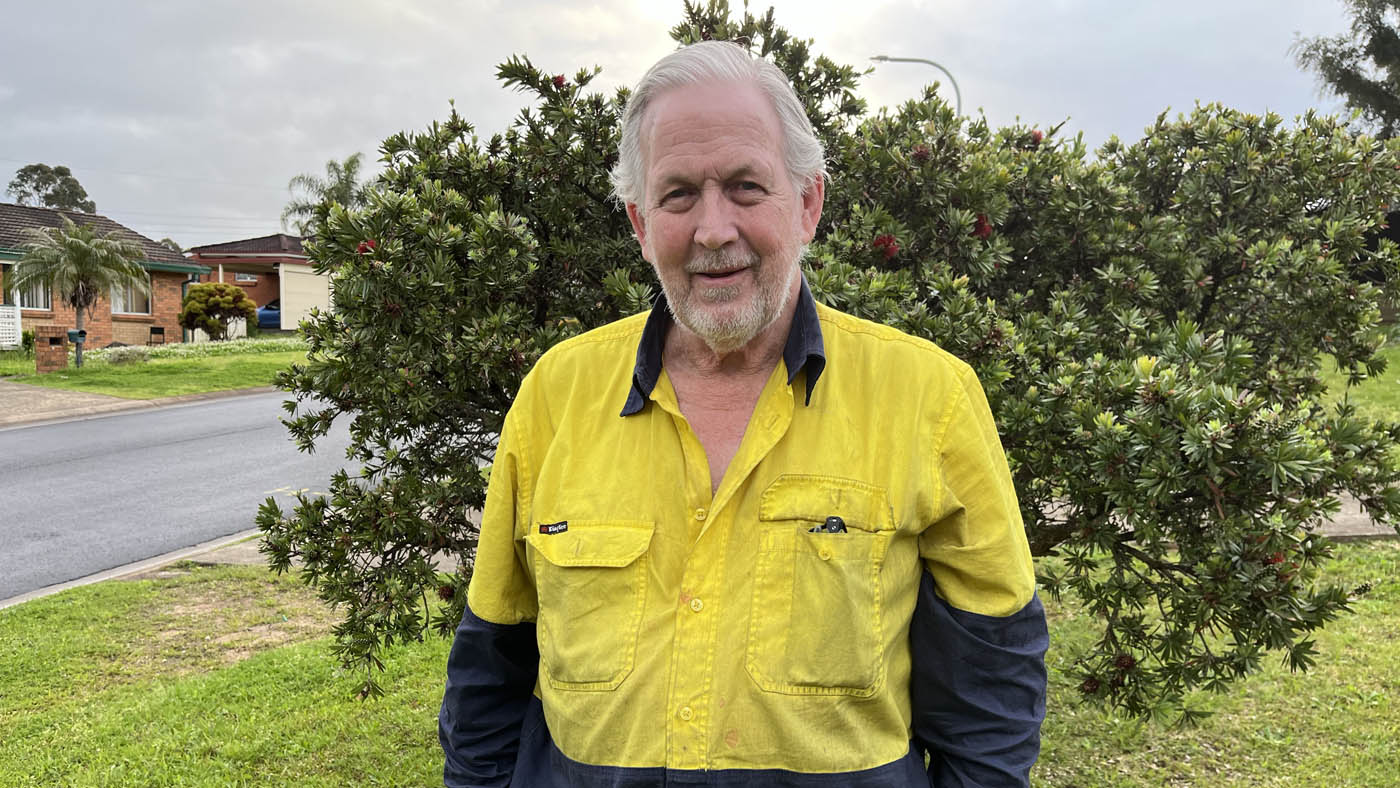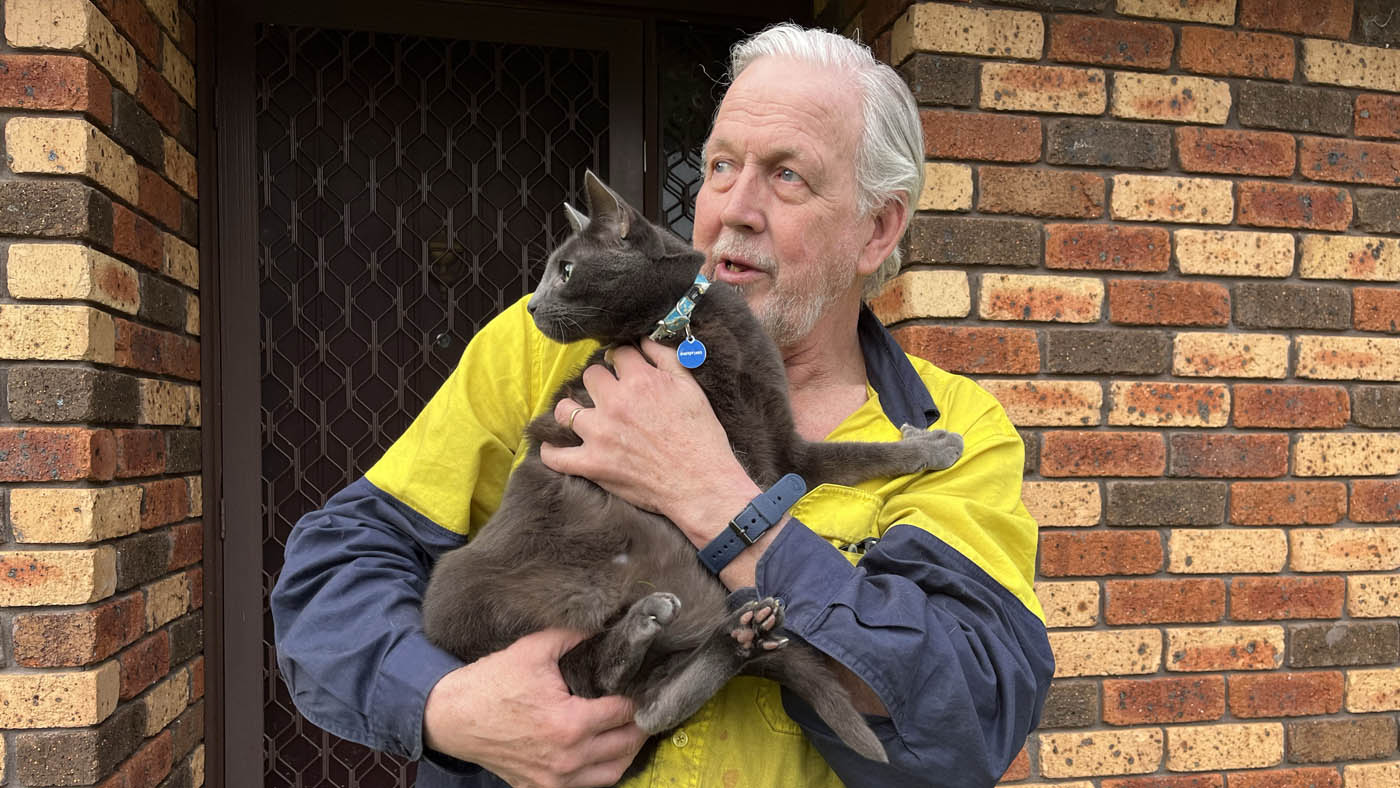Steve's story: getting back to work
A work accident left Steve with a traumatic brain injury. Almost two years later he has managed to return to most of his previous activities and the job he loves. Steve is in the Workers Care Program.

Coming home from hospital after a brain injury, 67-year-old Steve felt he was confronted with a wall of restrictions. It was April 2021 and for more than a year he wasn't allowed to drive, to climb a ladder, use hand tools, use power tools, play golf or drink alcohol.
As someone who sees himself as practical and competent, he found the enforced inactivity at home very frustrating.
Support team
Steve worked with different service providers including a psychologist, occupational therapist, speech pathologist and vocational rehabilitation consultant. He had driving lessons to get his licence back.
Steve's irritations have now passed and he is back at work with his former employer. He says he would've liked to have had a booklet of dos and don'ts to better prepare him for life after brain injury. He now understands why he was restricted from doing certain things.
“After the injury I needed to rebuild my stamina and stick to the methodology. I needed to be patient – it pays dividends.”
Varied work
Steve grew up and went to school in Sydney's Liverpool area. He enjoyed designing and making things like bookcases and dreamt of being an architect. But after training as an architectural draftsman, he worked as a state manager for a bank, a quantity surveyor for a housing company, and for a construction company.
In 2011, a friend pointed him to a job at a company installing toxic-fume exhaust systems. Steve loved the work: being on site, reading drawings, putting fume cupboards together. The work took him to all sorts of interesting sites like a gold refinery, university labs and the zoo.
At Taronga Park Zoo they installed a ventilation system to capture ozone gases given off when cleaning the ocean water used by the fairy penguins, seals and sea lions. The water was cleaned a number of times a day and needed to be decontaminated before being returned to the harbour.
Steve and his colleagues watched the behind-the-scenes activities at the zoo. He tells wonderful stories about the antics of the animals as they needed to be moved to different areas to accommodate the work his team had to do.
Full-time dad
Thirteen years ago, Steve's wife Anne suddenly died of a heart attack aged 48. Their older daughter Renée had already left home but their younger daughter Kayla was only 12. Steve and Kayla’s worlds changed overnight.
Steve rang his boss to tell him what had happened and his boss replied, "Give one of the reps six hours to bring him up to date on your job then go and be a daddy to Kayla."
Steve left work and became a full-time dad.
Kayla said to him, "This was our home with Mum. Now we need to make our house a home with Mum's memories."
Workshop accident
Once Kayla had finished school, Steve returned to work. In March 2021 when he was building a couple of washdown stations he had the accident. An offcut of heavy 20-millimetre plastic from elsewhere in the workshop landed on his head. Steve describes the scene in slices.
"People were rushing about … I was being loaded into an ambulance … I was blacking out."
His skull had been fractured, his brain was injured and he needed an operation to insert mesh over the gash. Titanium screws were inserted to hold a piece of his skull in place. Steve still suffers from loss of focus. He gets distracted and feels overwhelmed.
"I have too many projects in my head and don't finish them. I always used to complete a project I started."
But things are getting better.
“As I said, if you stick with the recovery plan, you get there!”
All the while that Steve is chatting, his beloved cats are chasing one another around the house and up onto their scratch gymnasium that's almost as high as the ceiling. Buddy is a 7-year-old Russian Blue that his daughters gave him as a 60th birthday present. Then there are the two rescue cats, Hunter and Myra.

Steve with Buddy, the Russian Blue.
Bush photographer
Everything Steve does, he does with intensity.
He'd been an amateur photographer of wildlife, birds especially. His recreational therapist suggested he take up photography again so out came his collection of cameras and lenses. Several times a month he heads out to Burragorang Lookout near Warragamba Dam to photograph rainbow lorikeets or eastern rosellas in the bush.
Cats and cameras are not the extent of his passions. He collects knives in an array of shapes, sizes and functions. He has 15 plastic tubs of fixed and folding blades, of blades with interesting handles, blades that are gravity-fed, others that are front-flippers, and blades that are billeted, or folded steel.
With his driver licence restored and his golfing rights back, Steve feels he's recovered the independence he craved. And being able to finally return to work has been the icing on the cake.
Message of hope
"It made me feel wanted. Fulfilled. Not useless like I did when just sitting at home."
But Steve's challenges weren't over. He started a graded return to work schedule early in 2022. Just before he was due to return to work, he was diagnosed with Stage 1 prostate cancer leaving him unable to work for two months while he underwent treatment. He was operated on in August, allowing him to restart his return to work process.
The adage Steve lives by is:
“Just take life in your stride, each day as it comes. Tomorrow will be a better day.”
"Worry about what you’ve got control over and the rest will fall into place. Let the other stuff go.
"I want to give a message of hope to others after an injury: you feel that everything is moving too slowly but if you stick to and believe in the system, you get there!
"Things may not come as fast as you want, but they will come. Your support team all want to help you."

